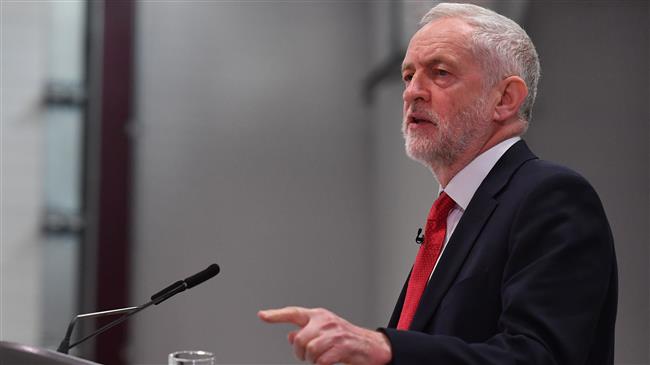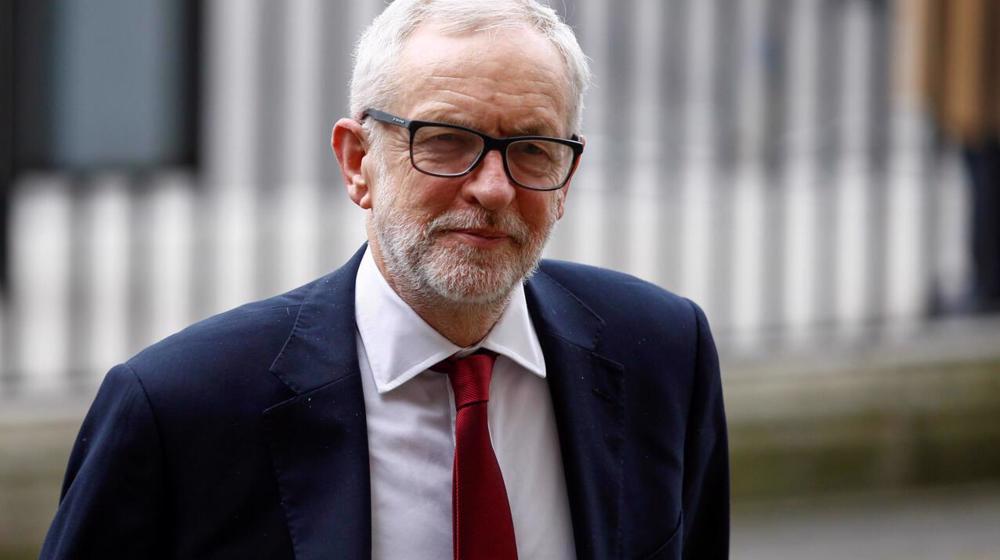Corbyn: UK ‘misleading’ public over spy poisoning
UK Labour leader Jeremy Corbyn says British Foreign Secretary Boris Johnson has offered a “misleading” account of the recent chemical attack against a former Russian double agent.
Speaking to British media about the last month attack on Sergei Skripal, 66, and his daughter outside a mall in Salisbury, Corbyn said Wednesday that Johnson had “eggs on his face” for saying that the government experts at the Porton Down laboratory were “categorical” that the nerve agent used in the attack was Novichok and had Russian origin.
"He (Johnson) claimed categorically, and I think he used the words 101 percent, that it had come from Russia…. Porton Down have not said that,” Corbyn said.
“They've said that they've identified it was Novichok [but] they cannot identify the source of it. And so, either the Foreign Secretary has information that he's not sharing with Porton Down or it was a bit of an exaggeration," the opposition leader continued.
Corbyn was referring to Johnson’s interview with German broadcaster Deutsche Welle on March 20, where he said London was sure about the Russian origin of the attack because “the people from Porton Down” were “absolutely categorical” that this was the case.
“I asked the guy myself, I said, 'Are you sure?' And he said there's no doubt,” Johnson said then.
Later on Wednesday, Corbyn told reporters that Johnson “needs to answer some questions.”
The statements by Corbyn did not go down well with Johnson, who said on Twitter that Corbyn was “playing Russia’s game.”
“It is lamentable that Jeremy Corbyn is now playing Russia’s game and trying to discredit the UK over Salisbury attack,” he wrote in a tweet.
Repeating his previous allegations against Moscow, Johnson pushed the envelope even further by accusing Russia of investigating “delivering nerve agents, likely for assassination.”
He also claimed that “Russia has motive for targeting Sergei Skripal.”
Accusing Skripal of spying for Britain, Russia arrested him in 2004 and sentenced him to 13 years in prison in 2006. However, the former spy was released four years later as part of a US-Russian spy swap.
Apparently, London had paid Skripal more than $100,000 in exchange for information about the Russian military intelligence’s agents in Europe.
Moscow has vehemently denied any involvement, saying the substance could have originated from the countries studying Novichok, including the UK itself, Slovakia, the Czech Republic and Sweden.
Araghchi: Iran-Russia strategic deal step toward ‘more just world’
UNRWA unraveled amid Israel's allegations, reduced intl. support
Palestinian journalist, a Sobh Media Festival awardee, killed in Gaza hours before truce
Jan. 15: ‘Axis of Resistance’ operations against Israeli occupation
VIDEO | Fears, hope in Gaza amid intensified ceasefire efforts
VIDEO | Press TV's news headlines
Hamas: Ceasefire agreement result of steadfastness, resistance in Gaza over 15 months
Hamas thanks Iran, Resistance Front following achievement of ceasefire in Gaza












 This makes it easy to access the Press TV website
This makes it easy to access the Press TV website